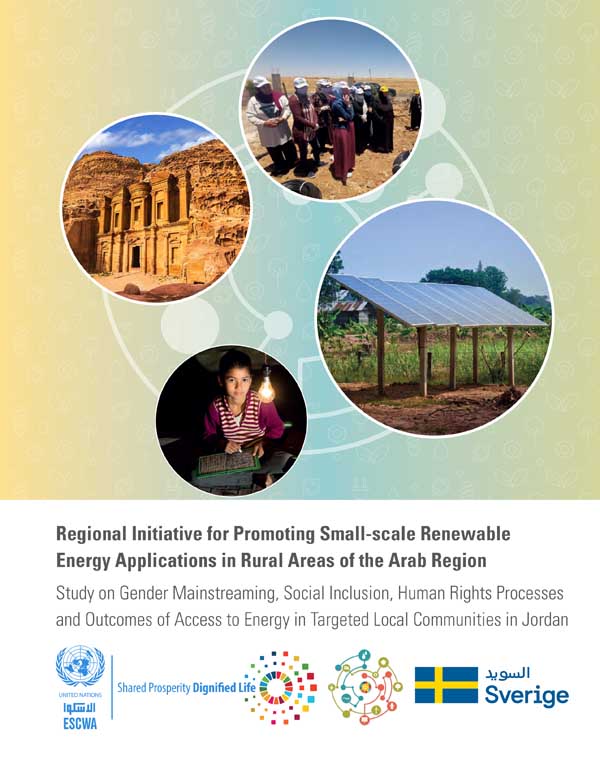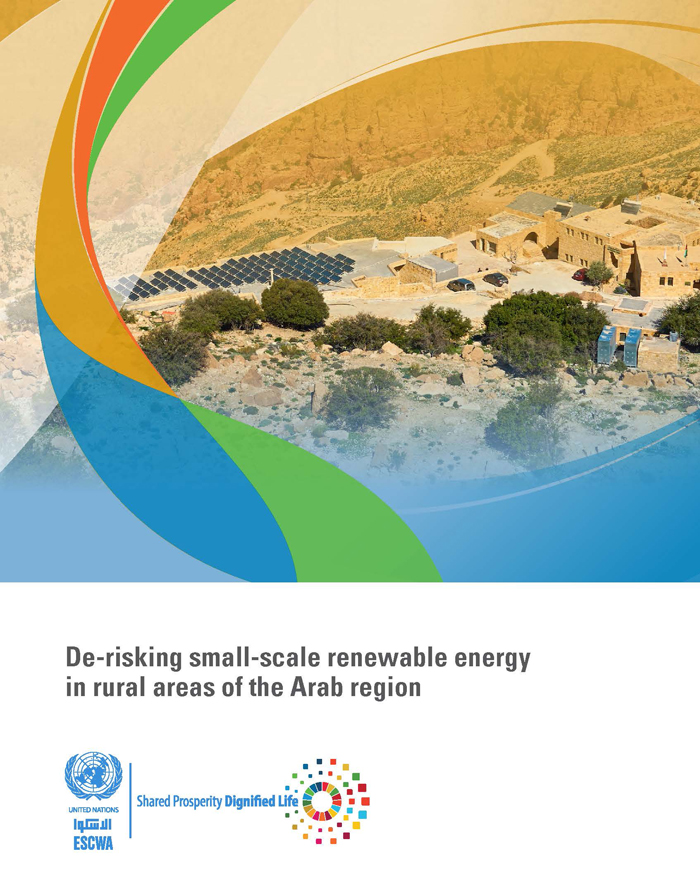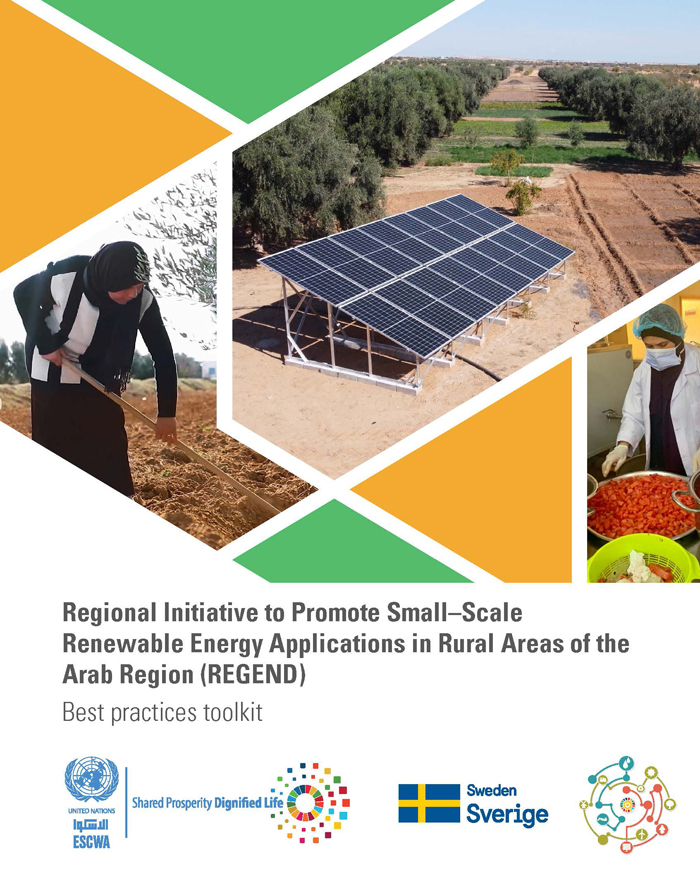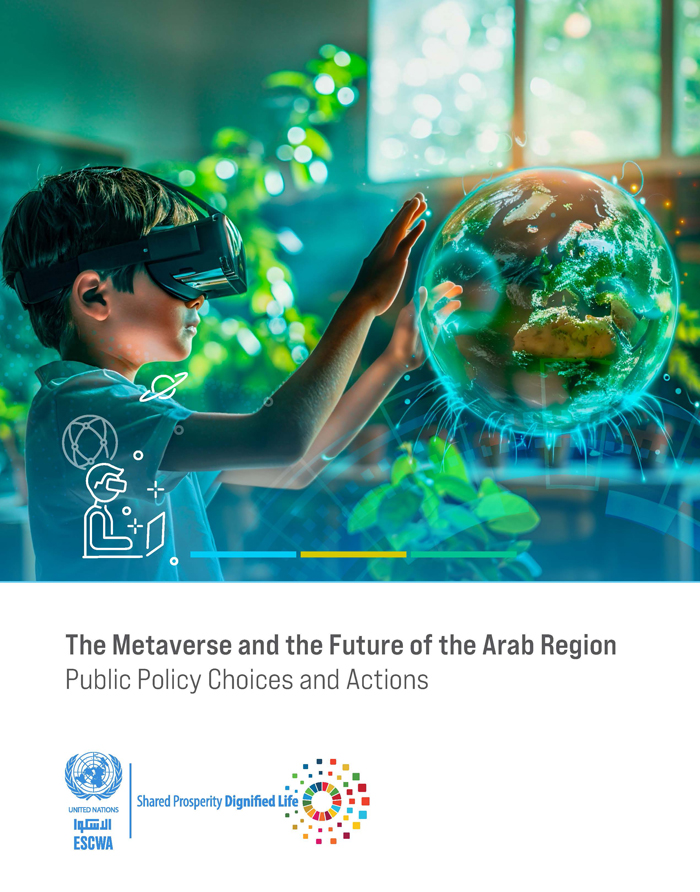
ESCWA Publication: E/ESCWA/CL1.CCS/2020/TP.4
Country: Arab region, Hashemite Kingdom of Jordan
Publication Type: Information material
Cluster: 2030 Agenda and SDG Coordination
Focus Area: Natural resource sustainability
Initiatives: REGEND
SDGs: Agenda 2030
Keywords: Agriculture, Arab countries, Climate change, Education, Employment, Empowerment, Entrepreneurship, Equality, Gender mainstreaming, Renewable energy sources, Rural areas, Women, Technical cooperation, Gender and renewable energy
Study on gender mainstreaming, social inclusion, human rights processes and outcomes of access to energy in targeted local communities in Jordan
January 2020
This report was developed within the REGEND (Regional Initiative for Promoting Small-Scale Renewable Energy Applications in Rural Areas of the Arab Region) framework with an assessment to guide REGEND’s future activities in the country.
The report presents the findings of a detailed review and analysis of gender issues associated with energy services in Jordan. It calls attention to the challenges and barriers rural women face in employment and entrepreneurship in energy sectors. It also highlights the potential for gender mainstreaming and identifies opportunities to support the local private sector, and to promote and expand the use of small-scale renewable energy technologies, while emphasizing the environmental and climate benefits associated with them. The report also provided recommendations on the pilot rural community/communities – al-Asha’ary, Batir and Rakin– where most of REGEND’s activities will be conducted.
Related content
Natural resource sustainability
,
This report was developed within the REGEND (Regional Initiative for Promoting Small-Scale Renewable Energy Applications in Rural Areas of the Arab Region) framework with an assessment to guide REGEND’s future activities in the country.
The report presents the findings of a detailed review and analysis of gender issues associated with energy services in Jordan. It calls attention to the challenges and barriers rural women face in employment and entrepreneurship in energy sectors. It also highlights the potential for gender mainstreaming and identifies opportunities to support the local private sector, and to promote and expand the use of small-scale renewable energy technologies, while emphasizing the environmental and climate benefits associated with them. The report also provided recommendations on the pilot rural community/communities – al-Asha’ary, Batir and Rakin– where most of REGEND’s activities will be conducted.



